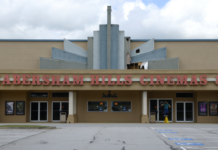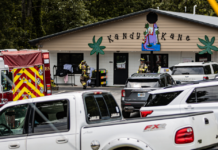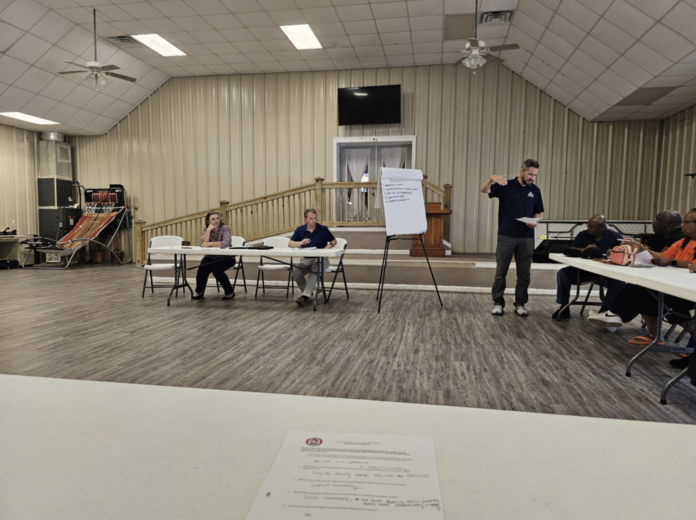
Before the public arrived, a volunteer carefully arranged the papers—each stack laid out like a welcome mat on tables arranged for group discussion. At the front of the room, a giant flip chart stood beside the facilitator, anchoring the space with intention. A quiet hum of energy filled the room as stakeholders gathered to talk about the future of housing in Cornelia.
Heath Barrett, a sixth-generation Habersham County resident, opened the April 21 town hall meeting at Shady Grove Baptist Church. The conversation was framed by a personal account from one of the attendees about their stake in affordable housing. They shared that their daughter, a soon-to-be newlywed and first-year elementary school teacher, can’t find a home she can afford. Despite two incomes, a college degree, and deep roots in the community, she remains priced out of the market.
That is the heart of the issue at hand.
Developing a strategy
Barrett laid out the housing crisis in Habersham without theatrics. He didn’t need to dramatize it—the room already understood the weight of the situation.
Across the table sat builders, teachers, nonprofit directors, city officials, public health workers, and realtors. Some wore baseball caps, others crisp white collars. Some arrived with baby strollers and others with advanced degrees. All came with a stake in the conversation—and more importantly, in the community. They convened under the banner of the Georgia Initiative for Community Housing (GICH), a volunteer group working to expand access to affordable housing and preserve the livability of aging homes in Cornelia.
GICH works in partnership with the University of Georgia and the Georgia Department of Community Affairs. The GICH team offers insight and feedback to inform a long-term housing strategy. City officials say they will use this input to guide Cornelia’s future development decisions.
The meeting began with a community survey and a set of open-ended questions. The answers came quickly and candidly. What do residents want? “Affordability.” “Access.” “Revitalization.” But beneath those buzzwords lay a deeper range of concerns—ones shaped by experience and proximity.
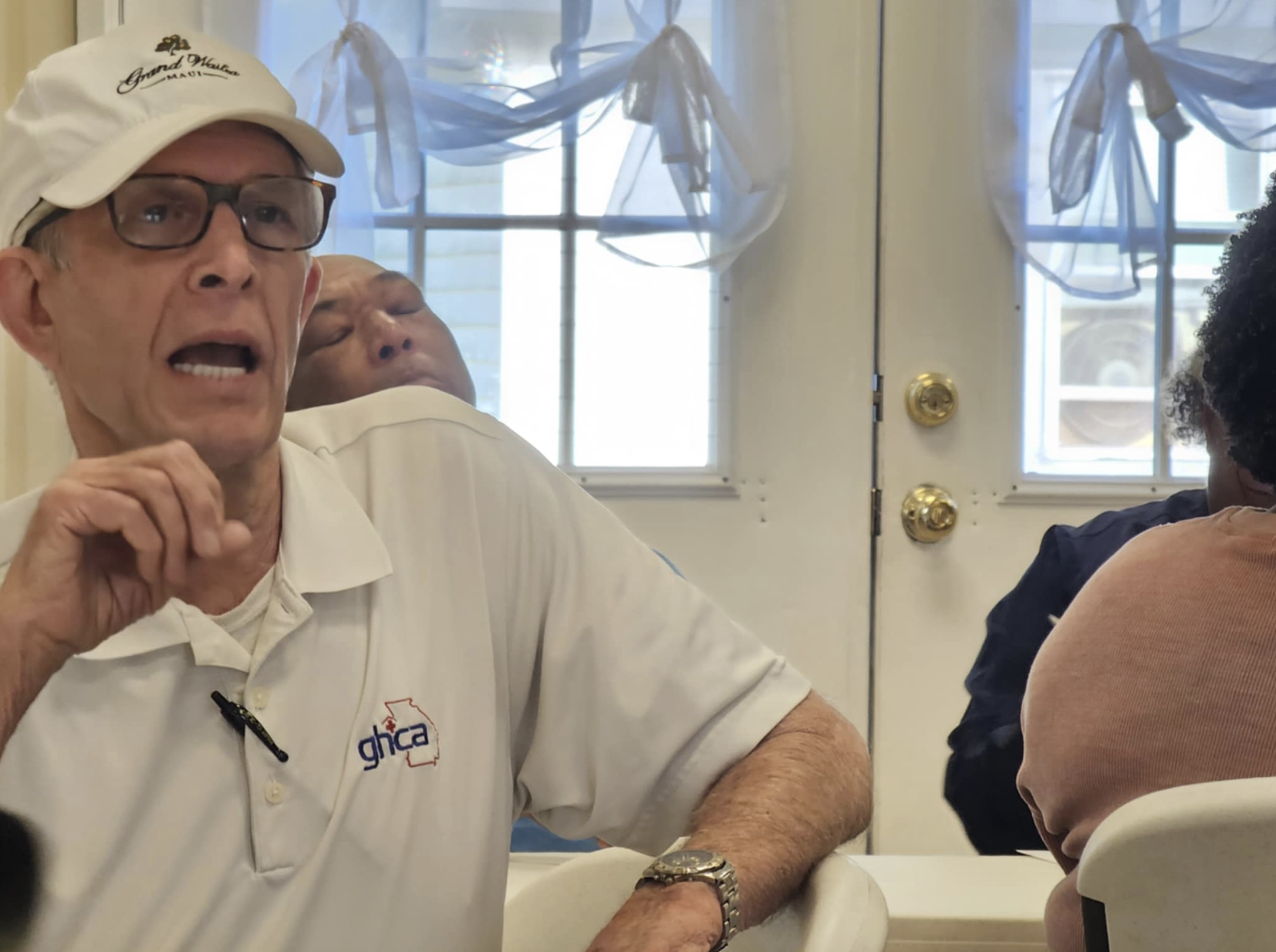
Maria Queriapa, of the Amber Orr Realty Team, described the increasingly difficult task of helping buyers find homes under $250,000. Most options in that price range require repairs, and buyers with non-conventional loans struggle to compete. “It’s not that people aren’t looking,” she said. “They’re just losing bids.”
Blake Foster of Transform Habersham offered a reminder that the conversation must also include those without homes. “For many experiencing homelessness,” he said, “$400 to $700 a month is the most they can afford.” In 2019, that price range was realistic. In 2025, it’s nearly unthinkable. “But housing,” Foster argued, “is only part of the equation. The lack of public transportation and stable employment compounds the problem. We create homelessness when we don’t build systems that allow people to live,” he explained.
A perfect storm
Over the past few years, the housing market has faced a perfect storm. Low interest rates throughout the early 2020s spurred a wave of refinancing and locked many homeowners into historically favorable mortgage terms. As a result, fewer owners feel compelled to sell, dramatically reducing housing inventory nationwide. At the same time, the cost to build new homes surged, fueled by labor shortages, supply chain disruptions, and rising material costs. This imbalance between demand and supply pushed prices higher, creating one of the most competitive and costly housing environments in recent memory, including in Habersham County.
Audrey Davenport, an advocate for housing quality, urged the group to look inward.
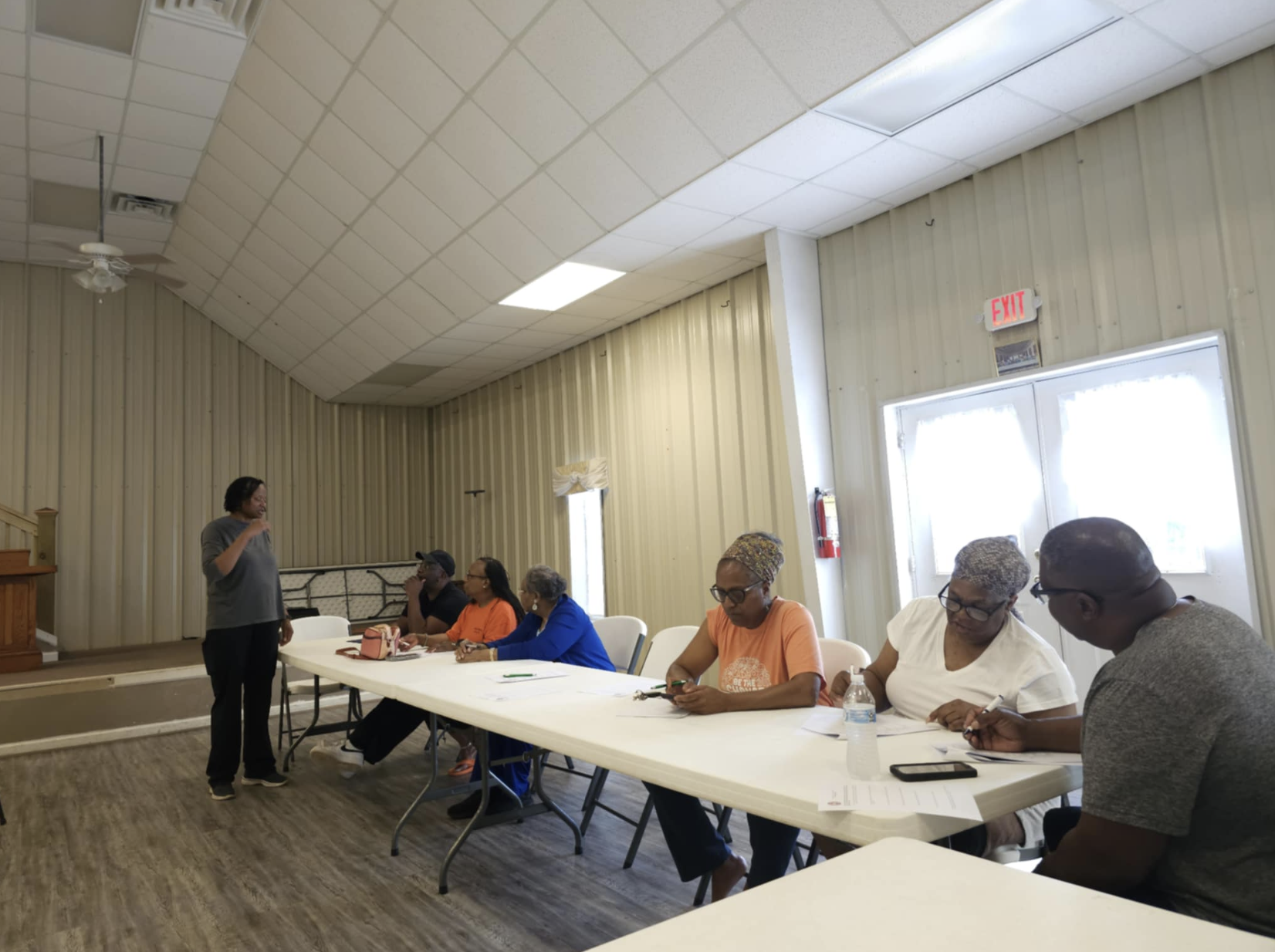
“We need to be more intentional,” she said, critiquing the generic language of the survey. “These questions don’t make sense to this neighborhood.” She suggested dispatching teams to knock on doors in mobile home parks and historically Black neighborhoods—communities that sometimes go unheard in traditional outreach efforts.
Barrett lit up at the suggestion.
“Let’s do it,” he said, proposing a coalition of volunteers to canvass these areas alongside ongoing GICH efforts. For Barrett, specificity is key—not just for strategy but also for grant writing. “We won’t chase a grant people don’t need,” he said.
Not just about housing
As the conversation widened, so did the range of topics: bilingual outreach, housing and city infastructure for disabled children, and the lack of senior-specific accommodations. The group listened, documented, debated. They didn’t rush to conclusions. They didn’t talk over one another.
To those who questioned the slow pace of change, Barrett offered a reminder: “No decision is overnight.” Jessie Owensby, Cornelia’s Community Development Manager, added, “That’s why we need to make a plan.”
They’ve already made progress. The group hosted its first public meeting at Cornelia Elementary—an accessible location for the city’s large Hispanic community—and distributed surveys and flyers in Spanish. They’ve expanded their language, broadened their outreach, and started asking harder, more targeted questions.
As the meeting ended, neighbors lingered in clusters, still talking and thinking. An elegantly dressed woman named Ann Nicely hugged her granddaughter and great-granddaughter as they prepared to leave. Their bond exemplified what it means to have roots in a place—not just family lineage but generational belonging. Like so many others in the room, their presence made it clear: this isn’t just about housing. It’s about home.
This article has been updated. A previous version of this article misidentified the daughter in the story as Heath Barrett’s.




